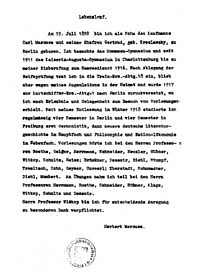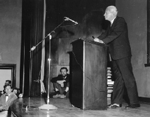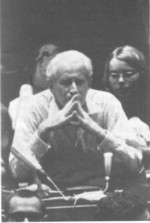
top of this page
page by Harold
Marcuse
begun in Nov. 1997 at history.ucsb.edu
expanded and moved to marcuse.org
in March 2001
contact: [email protected]
site visits
since March 27, 2001
for a more detailed
tracking of hits,
see Visitor Statistics Page
7700 on Mar. 27, 2002 [64/day]
7,700=21 hits/day first year
10,000 on 5/3/02 [62/day]
27,000 on Mar. 27, 2003
19,300=53 hits/day 2nd year
32,000 on 5/30/03 [87/day prev. month]
Herbert buried in Berlin, 7/18/03
38,000 on 7/26/03 [157/day since 7/1/03]
40,000 on 9/7/03 [70+/day recently]
50,000 on 1/18/04 [75/day]
56,300 on March 27, 2004
29,300=80 hits/day 3rd year
60,000 on May 3, 2004 [100/day]
70,000 on Sept. 24, 2004 [73.5/day]
84,000 on Jan. 5, 2005 [136/day]
35,250=96.6 hits/day
in 2004
90,000 on Feb. 15, 2005 [146/day]
95,300 on March 27, 2005 [132/day]
40,000=109 hits/day 4th year
100,000 on Apr. 23, 2005 [175/day]
115,000 on Aug. 2, 2005 [125/day]
130,000 on Nov. 15, 2005 [202/day]
137,250 on Jan. 1, 2006 [103/day]
54,000=148 hits/day in
2005
165,200 on Aug. 6, 2006 [80/day]
182,300 on Dec. 31, 2006 [78/day]
45,050=123 hits/day in
2006
183,835 on 1/16/07 [96/day]
200,695 on 6/26/07
[101/day, during radio broadcast]
200,900 24 hrs later [205/day]
217,510 on 12/31/07=79/day
35,210=98.4 hits/day
in 2007
244,450 on 10/8/08=162/day
282,550 on 1/1/10=86/day
299,000 on 10/16/10=68/day
304,895 on 1/1/11=61/day in 2010
353,510 on 11/30/12= 69/day
356,400 on 1/4/13=83/day
70.1/day in 2011+2012
365,714 on 4/23/2013=176/day
367,000 on 5/6/2013=100/day
375,816 on 10/15/13=43/day
61.7/day in 2013
379,420 on 1/13/14=40/day
388,540 on 9/15/14=31/day
390,740 on 10/19/14=64/day [during 2 confs.]
392,000 on 11/6/14=70/day
401,386 on 5/3/15=53/day
404,860 on 7/31/15=39/day
407,300 on 11/11/15=24/day
407,395 on 11/15/15=24/day during IHMS conf.
412,637 on 6/8/2016=25/day
419,634 on 1/31/2017=29/day
--------------------------------
est. 5000 views Feb-Sept. (no counter)
Sparklit stopped counter service in July 2017
now using "simplehitcounter.com"
--------------------------------
set to 425,000 on 9/18/2017
430,538 on 4/14/2018=26.5/day
431,787 on 6/20/18=18.7/day
433,050 on 9/3/18=17/day
433,463 on 9/21/18=23/day
435,936 on 1/20/2019=20.3/day
|
|
Guest Book for Herbert Marcuse homepage |

Please click to read entries and leave your name and comments--thank you! |
Sparklit Guestbook statistics, 2001-2017:
In the 9 months from Sept 6, 2001 to June 6, 2002, the Guestbook had
600 of 1165 total views were unique, namely 51.5%.
On 10/12/02: 887 of 1866 views were unique (47.5%).
On 12/18/02: 994 of 2057 views were unique (48.3%)
On 1/3/2003: 1030 of 2114 views were unique (48.7%)
On 6/1/2003: 1410 of 2792 views were unique (50.5%).
On 7/8/2003: 1485/2954=50.3% were unique. (160 entries)
On 7/27/2003: 1561/3102=50.3%views unique (178 entries)
On 9/8/03: 1622/3252=49.9% unique (187 entries).
On 3/27/04: 1979/3863=52.2% unique (249 entries)
On 5/30/04: 2168/4587=47% unique (277 entries)
On 7/9/04: 2270/4852=46.8% unique (284 entries)[120 e/yr]
On 10/5/04: 2455/5238=46.9% unique (296 entries)
On 11/30/04: 2668/5281=50.5% unique (315 entries)
On 2/17/05: 3014/6978=43.2% unique (341 entries)
On 7/6/05: 3786/11,960=32% unique (379 entries)[96/year]
{At this point I think spam engines inflated the number of visits substantially, visiting over and over again: % unique dropped}
On 3/12/06: 12,069/158,961=7.6% unique (429 entries)
On 6/2/06: 15,700/170,300=9.2% unique (438 entr.)[63/yr]
On 6/10/07 33,670/223,400=15% unique (490 entr.)[52/yr]
On 11/13/09: 59,333/311,229=19% unique (556 entr)[65/yr]
on 4/15/11: 66,672/331,120=20% unique (583 entr.)[31/yr since 2005]
on 7/23/12: 77,576/350,915=22% unique (609 entr.)[1.8/month since 2011]
on 11/30/12: 84,653/361,231=23% unique (610 entries)
on 10/20/14: 104,785/397,159=26% unique (628 entries)
on 5/3/15: 109,456/406,902=27% unique (632 entries)
on 1/31/17: 120,051/428,723=28% unique (637 entries)
The counter keeps a history of visitors over time, so the numerator of
the fraction is the total number of unique different locations from which
the guestbook was accessed.
(return
to top)
|
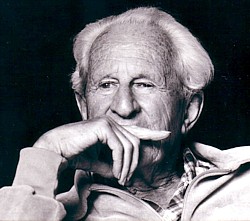 Herbert in the late 1970s (photo
I. Ohlbaum)
Herbert in the late 1970s (photo
I. Ohlbaum)
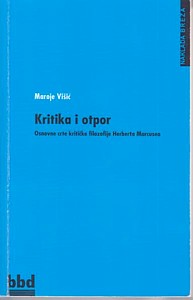
 Per una filosofia concreta. Alle radici del pensiero di Marcuse (Clinamen, 2018), 132 pages. ['For a concrete philosophy. To the roots of Marcuse's thought'](
Per una filosofia concreta. Alle radici del pensiero di Marcuse (Clinamen, 2018), 132 pages. ['For a concrete philosophy. To the roots of Marcuse's thought'](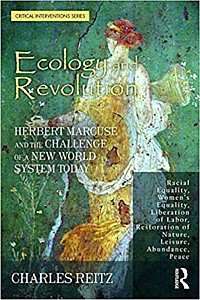
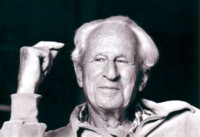
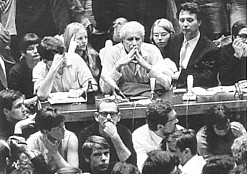
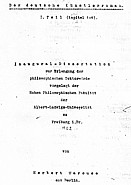
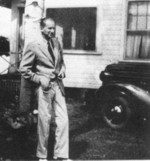
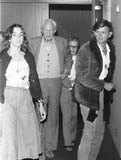
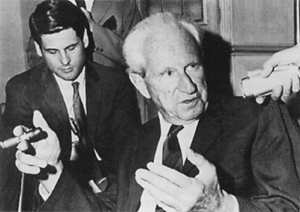 short
biography
short
biography